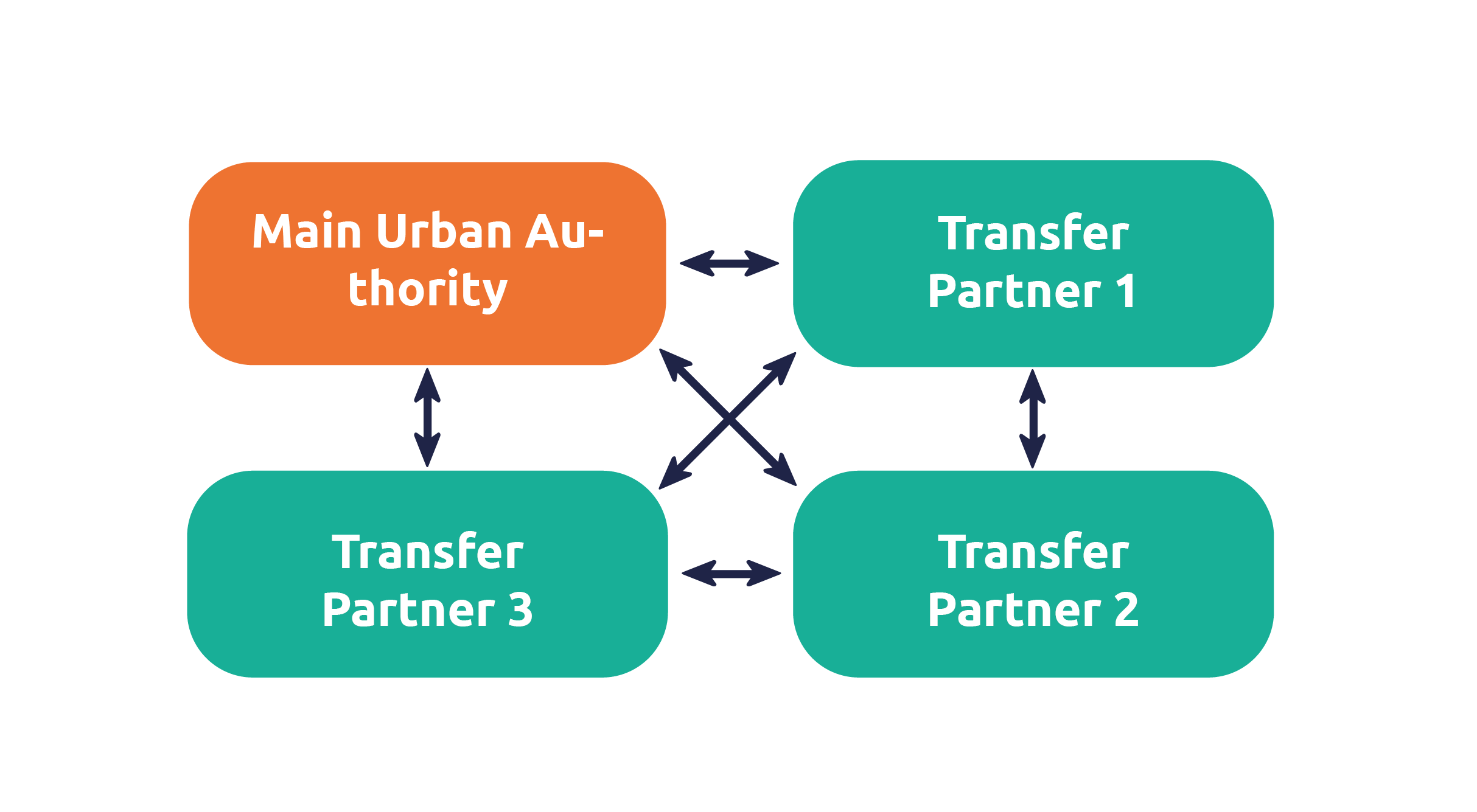It is important to underline that the primary focus of the EUI-IA projects remains on the testing of new innovative solutions in a given locality, but with this new component it is expected that the processes and results of experimentation will be followed by partner cities from other countries (Transfer Partners).
A dedicated Transfer Work Package is now included in all EUI-IA projects, with specific activities, budgets, deliverables and outputs.
EUI-IA is established to identify and support the testing of transferable and scalable innovative solutions to address issues relating to sustainable urban development at the European Union level. It also aims to collect and share results from experimentations (also via supporting transfer activities) to foster innovation capacities and knowledge building for all EU urban areas. The objective is that EUI-IA project outputs are used (replicated, scaled up) by other EU cities increasing the impact of the whole Initiative, contributing to urban policymaking on different levels, as well as supporting cooperation between European urban areas.
Objectives
Introducing the transfer component into the EUI-IA projects, should achieve the following objectives:
- To increase the general adaptability and replicability of the innovative solution developed by the EUI-IA project to other urban areas in the EU and then enhance its chances to be replicated abroad and deployed at wider scale (possibly with funding from mainstream Cohesion policy programmes).
- To allow Transfer Partners to raise their own innovation potential and increase their capacity for implementing innovative solutions (both in terms of content and process).
- To prepare the process of replicating the tested innovative solution in the cities participating in the transfer activities and benefiting from a ready to replicate solution.
- To contribute to the improvement of local policies and strategies.
- To support knowledge exchange between all Partners.
Furthermore, the MUA will be able to benefit from the EU recognition of their transformative role and to test the replicability of their innovative action model by confronting it to other urban realities and experiences.
Partnership
As presented above in the Chapter 2.1 “Partnership for the European Urban Initiative – Innovative Actions”, the Project Partnership is in principle composed of the MUA (and AUA – if relevant), Delivery Partners and 3 Transfer Partners. For the implementation of the Work Package Transfer, the involvement is obligatory at least for the MUA and the Transfer Partners. If not the MUA itself, it is required that at least one Delivery Partner demonstrates experience in managing or being part of international transfer or networking activities in order to facilitate/support the MUA if needed in the successful implementation of the transfer activities. Moreover, it is highly recommended that Delivery Partners are also actively involved as their presence will be beneficial for reaching the objectives of the transfer component of the EUI-IA projects and the overall legacy of the project.
It’s important to underline that the entire transfer cooperation should support multidirectional exchanges and should not be designed as only one way (from the MUA to Transfer Partners) knowledge transfer (Figure 5 below).
Figure 5. Multidirectional exchanges in the transfer cooperation

Timeline
As explained in the Chapter 1.7 “Project phases”, the implementation of the Work Package Transfer must be launched at the latest 12 months after the start of the Implementation phase and must continue until the end-date of the project implementation.
Launching the Work Package Transfer means that:
- The Partnership Agreement with the Transfer Partners must be signed and provided to the Permanent Secretariat;
- The Application Form (Part B related to Transfer Partners and activities, deliverables and outputs of the Work Package Transfer) must be updated with the transfer cooperation details, based on the workplan jointly discussed and agreed with the Transfer Partners.